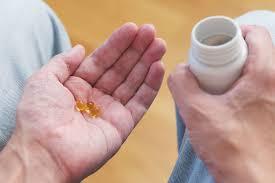Vitamin D3: Why It’s Essential for Your Health

Vitamin D3, also known as cholecalciferol, is a vital nutrient that plays a key role in many of the body’s essential functions. Often called the “sunshine vitamin,” D3 is produced in the skin in response to sunlight and is also available in certain foods and supplements. While many people are aware that vitamin D is good for bones, its benefits extend far beyond just skeletal health.
Uvclas D3 is a high-potency vitamin D3 supplement used to prevent and treat vitamin D3 deficiency. It comes in an oral solution of 60000 IU and offers a practical way to regain normal levels of vitamin D in the body.
Let’s explore why vitamin D3 is important, how it benefits the body, and how to make sure you’re getting enough.
What Is Vitamin D3?
Vitamin D3 is one of two main forms of vitamin D, the other being D2 (ergocalciferol). D3 is the more potent and bioavailable form, meaning it is more effective at raising and maintaining adequate levels of vitamin D in the blood.
Unlike most vitamins, vitamin D functions more like a hormone. Once ingested or synthesized through sunlight exposure, it is converted in the liver and kidneys to an active form that supports multiple systems in the body.
Health Benefits of Vitamin D3
1. Supports Bone Health
Vitamin D3 plays a crucial role in calcium absorption. Without adequate vitamin D, your body cannot effectively absorb calcium from the diet, leading to weakened bones. This can result in conditions like osteoporosis, rickets in children, and increased risk of fractures in older adults.
How it helps:
D3 maintains calcium and phosphorus levels in the blood, which are necessary for building and maintaining strong bones and teeth.
2. Boosts Immune Function
Vitamin D3 helps regulate the immune system and enhances the body’s defense against viruses and bacteria. It has anti-inflammatory properties and supports the production of antimicrobial proteins.
How it helps:
Adequate levels of vitamin D3 have been linked to reduced risk of infections like the common cold, flu, and even respiratory illnesses.
3. Supports Mental Health
Emerging research suggests a connection between low vitamin D levels and mental health conditions such as depression, anxiety, and mood disorders.
How it helps:
Vitamin D3 supports brain function and the production of neurotransmitters like serotonin, which influence mood and emotional well-being.
4. May Help Prevent Chronic Diseases
Some studies suggest that vitamin D3 may play a role in reducing the risk of chronic illnesses such as type 2 diabetes, high blood pressure, and even certain types of cancer.
How it helps:
It regulates insulin secretion, supports cardiovascular health, and may inhibit the growth of cancerous cells.
5. Supports Muscle Strength
Low vitamin D3 levels are associated with muscle weakness and increased risk of falls, especially in the elderly.
How it helps:
D3 promotes muscle function and coordination by influencing calcium handling in muscle tissue.
Signs of Vitamin D3 Deficiency
A deficiency in vitamin D3 can be subtle but may include:
-
Fatigue and tiredness
-
Bone and back pain
-
Muscle weakness or cramps
-
Frequent illness or infections
-
Depression or low mood
-
Hair loss
Those at risk include people with limited sun exposure, older adults, individuals with darker skin, and those with certain medical conditions like kidney or liver disease.
How to Get Enough Vitamin D3
-
Sunlight: 10–30 minutes of midday sun several times per week can help maintain healthy D3 levels.
-
Diet: Include D3-rich foods like fatty fish (salmon, mackerel), egg yolks, beef liver, and fortified dairy or plant-based milks.
-
Supplements: If you’re not getting enough from food or sunlight, vitamin D3 supplements are a safe and effective way to maintain adequate levels. Always consult your doctor for proper dosage.
Conclusion
Vitamin D3 is more than just a bone-building nutrient — it plays a vital role in immune support, mental health, muscle function, and chronic disease prevention. Ensuring you get enough vitamin D3 through sunlight, diet, or supplements can have a lasting impact on your overall well-being. If you suspect a deficiency, a simple blood test can help determine your levels and guide treatment.
- Art
- Causes
- Crafts
- Dance
- Drinks
- Film
- Fitness
- Food
- Oyunlar
- Gardening
- Health
- Home
- Literature
- Music
- Networking
- Other
- Party
- Religion
- Shopping
- Sports
- Theater
- Wellness
- Script
- App
